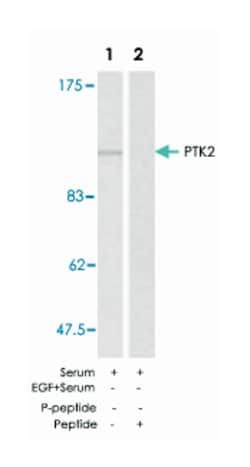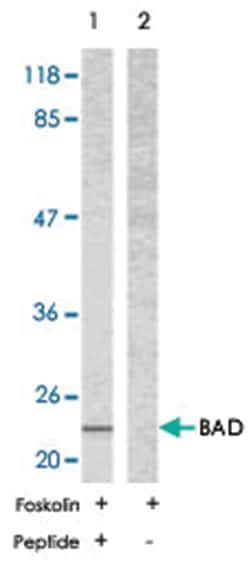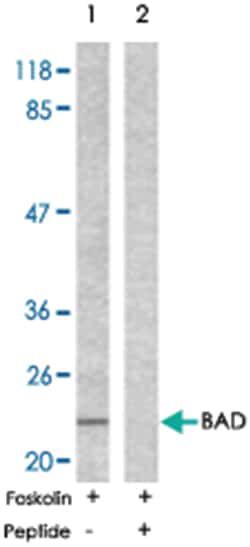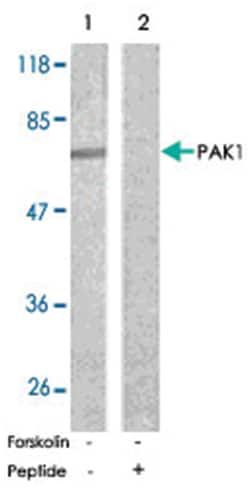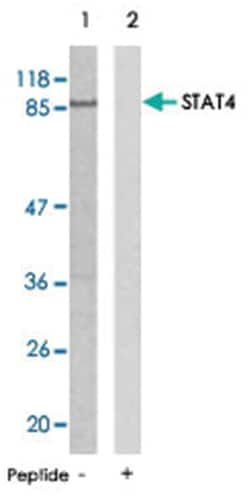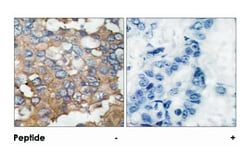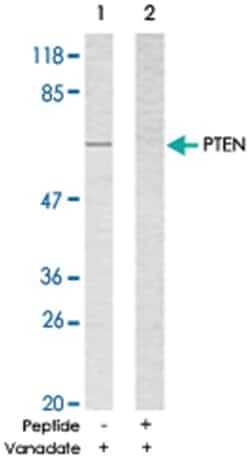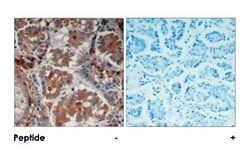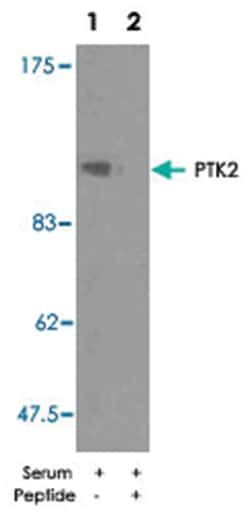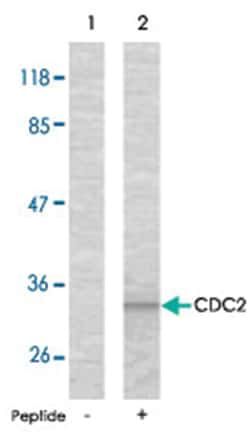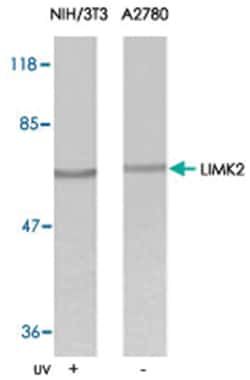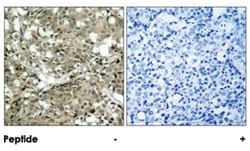PTK2 Rabbit anti-Human, Mouse, Rat, Polyclonal Antibody, Abnova™
Manufacturer: Abnova Corporation
Select a Size
| Pack Size | SKU | Availability | Price |
|---|---|---|---|
| Each of 1 | 89-128-354-Each-of-1 | In Stock | ₹ 53,133.00 |
89-128-354 - Each of 1
In Stock
Quantity
1
Base Price: ₹ 53,133.00
GST (18%): ₹ 9,563.94
Total Price: ₹ 62,696.94
Antigen
PTK2
Classification
Polyclonal
Conjugate
Unconjugated
Dilution
Western Blot (1:500-1:1000) Immunohistochemistry (1:50-1:100) The optimal working dilution should be determined by the end user.
Gene
PTK2
Gene Symbols
PTK2
Immunogen
A synthetic peptide corresponding to residues surrounding Y925 of human PTK2.
Quantity
100 μg
Primary or Secondary
Primary
Target Species
Human, Mouse, Rat
Form
Liquid
Applications
Immunohistochemistry (PFA fixed), Western Blot
Concentration
1 mg/mL
Description
Rabbit polyclonal antibody raised against synthetic peptide of PTK2.
Formulation
In PBS (without Mg2+and Ca2+), 150mM NaCl, pH 7.4 (50% glycerol, 0.02% sodium azide)
Gene Alias
FADK/FAK/FAK1/pp125FAK
Host Species
Rabbit
Purification Method
Affinity chromatography
Regulatory Status
RUO
Gene ID (Entrez)
5747
Content And Storage
Store at -20°C.Aliquot to avoid repeated freezing and thawing.
Description
- This gene encodes a cytoplasmic protein tyrosine kinase which is found concentrated in the focal adhesions that form between cells growing in the presence of extracellular matrix constituents
- The encoded protein is a member of the FAK subfamily of protein tyrosine kinases but lacks significant sequence similarity to kinases from other subfamilies
- Activation of this gene may be an important early step in cell growth and intracellular signal transduction pathways triggered in response to certain neural peptides or to cell interactions with the extracellular matrix
- At least four transcript variants encoding four different isoforms have been found for this gene, but the full-length natures of only two of them have been determined
- [provided by RefSeq Sequence: K-V-Yp-E-N
